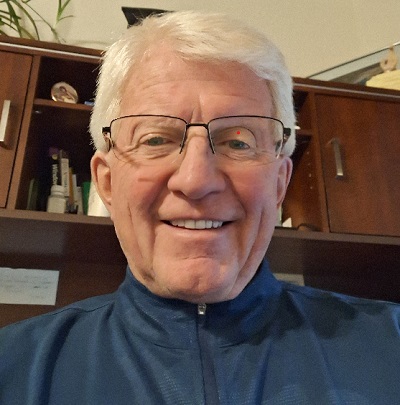Crime
The “Strong Borders Act,” Misses the Mark — Only Deep Legal Reforms Will Confront Canada’s Fentanyl Networks
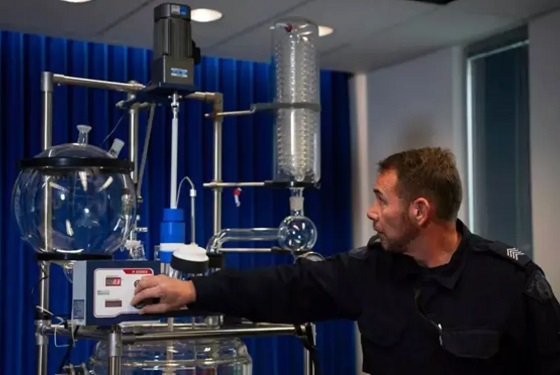
The fallout is a grim roll call of major investigations that collapsed before trial in British Columbia, Alberta, Ontario, and Quebec: Project E-Pirate, E-Nationalize, Syndicato, Cobra, Brisa, and Endgame all aborted.
Bill C-2, Ottawa’s so-called “Strong Borders Act,” promises to secure Canada’s frontiers with new surveillance powers, sweeping ministerial discretion, and higher penalties. But as veteran Canadian investigators know, the bill misses the point. It is an omnibus solution that expands the state’s reach online, while leaving untouched the very legal choke points that have made Canada a permissive financial platform and fentanyl laboratory for cartels, Triads, and state-linked terror networks.
For more than a decade, Canadian and U.S. enforcement leaders have pointed to the same failures. Police are confronting transnational fentanyl labs, a flood of Chinese chemical precursors, Hezbollah-linked laundering, and Mexican cartels setting up on Canadian soil.
Yet they are forced to fight these threats with laws “never designed for today’s criminal landscape,” as Canadian Chiefs of Police president Thomas Carrique recently warned.
Former RCMP investigator Calvin Chrustie testified before British Columbia’s Cullen Commission that, due to judicial blockages arising from Charter of Rights rulings, by 2015 it had become effectively impossible to obtain wiretaps on Sinaloa Cartel figures in Vancouver.
This year, RCMP Assistant Commissioner David Teboul said a proliferation of “commercial-grade chemistry” fentanyl labs in British Columbia — like the sophisticated factory dismantled last year in Falkland, north of Lake Okanagan, where Mexican cartels have quietly taken over domestic biker gang networks — underlined the urgent need for legislative reform.
Canada wasn’t always so overwhelmed by lethal foreign gangs. What happened? Overly permissive immigration rules and porous borders explain part of the story, but the deeper problem lies in the laws that have steadily eroded enforcement power since the early 1990s.
Instead of enabling prosecutions against transnational traffickers of humans, narcotics, and weapons, unintended consequences from misguided jurisprudence surrounding Canada’s Charter of Rights now ensure these cases almost always collapse, or are simply avoided by the Crown.
Two Supreme Court rulings — Stinchcombe and Jordan — have gutted the capacity to prosecute complex crime. Stinchcombe requires exhaustive disclosure of sensitive intelligence, often impossible in Five Eyes investigations that depend on close cooperation between Canada and the United States.
Jordan imposes strict trial ceilings that tick down while Stinchcombe disclosure battles drag on. Criminal lawyers know these two rulings function as trump cards stacked in favor of their clients.
The fallout is a grim roll call of major investigations that collapsed before trial in British Columbia, Alberta, Ontario, and Quebec: Project E-Pirate, E-Nationalize, Syndicato, Cobra, Brisa, and Endgame all aborted. Project Collecteur — a landmark probe linking Hezbollah and foreign terror-financing networks across Canadian cities to transnational drug money laundering, built on U.S. and Australian intelligence — barely made it to court, despite its far-reaching implications.
It was crippled by RCMP corruption and by underfunded, risk-averse agencies that abandoned Canadian leads painstakingly developed by Five Eyes partners.
How bad was it?
Farzam Mehdizadeh, a major Iranian money launderer and suspected weapons proliferation actor who ran a Toronto currency exchange while shuttling bags of drug cash between Toronto and Montreal, escaped back to Iran just as the RCMP was poised to arrest him on money-laundering charges. The beneficiary of a leaky national police force, evidently.
A senior U.S. enforcement source told The Bureau that during Project Collecteur, the RCMP stumbled onto an even bigger Chinese money launderer while probing Iranian networks, but the agency ignored the file — reportedly unable to shift its original investigation focus onto new enterprise targets.
These kinds of policing failures and decisions are part of the reason President Donald Trump has said senior U.S. investigators told him that Canada lacks the resources and capacity to confront fentanyl trafficking gangs.
In Washington, there is frustration — and at times a lack of understanding — that Stinchcombe either bars or effectively scares the Mounties out of cooperating with U.S. agencies or sharing intelligence.
Derek Maltz, former DEA chief under President Trump, pointed to the Falkland fentanyl super-lab case — part of a U.S.-led probe into Chinese precursor suppliers — as the latest example of “historical issues with the RCMP not sharing properly,” calling it a “major disaster that happened on that big lab in British Columbia.”
“It goes down to the basic information sharing, the antiquated laws,” Maltz said. After meeting with current Canadian police leadership, he concluded: “They’re so far behind and the laws are so antiquated and so archaic.”
The cost is staggering. Officers walk away from enterprise files, knowing they cannot meet disclosure or trial deadlines. Prosecutors refuse to take high-risk cases. U.S. agencies stop sharing intelligence that could be exposed in open court. Canada defaults to “low-hanging fruit” prosecutions while the upper echelons of global networks operate with near impunity.
Meanwhile, at the border, permissive Non-Resident Importer rules allow foreign entities to move chemical precursors through Canadian ports under layers of corporate opacity. Chinese logistics hubs repackage bulk fentanyl shipments bound for Vancouver, obscuring Canada’s visibility into their true origin. Once in Canada, packages can be collected by foreign nationals who further conceal their identities. To visualize the scheme, think of an “end-to-end encryption” app — Chinese trafficking networks enjoy the same kind of seamless concealment when shipping narcotics into Canada.
At the same time, Vancouver’s port — stripped of federal police under Jean Chrétien’s Liberal government — has container inspection rates below one percent, according to a British Columbia study.
It doesn’t seem that Bill C-2 will do anything to address these core vulnerabilities. It gives Ottawa broad powers to expand online surveillance, which may help with the drug networks that now brazenly advertise street sales on social platforms. But it would do so by subjecting all Canadians to invasive cyber surveillance. The bill does not target the transnational criminals who are already easy to identify and well known to law enforcement. These networks continue to operate openly in Canada, confident that the Charter shields them from real prosecution.
Meanwhile, experts warn that parts of C-2 resemble Ottawa’s wish list of new powers tossed into a grab bag. The effect is the opposite of inspiring public confidence or addressing the real enforcement crisis. As written, Bill C-2 could do more harm than good. Mark Carney’s government should shelve it and start again with the reforms Canada actually needs.
The Bureau is a reader-supported publication.
To receive new posts and support my work, consider becoming a free or paid subscriber.
Crime
Drug trafficker says Trump battle with the cartels is making an impact

Quick Hit:
A Sinaloa Cartel leader told CNN that President Trump’s border crackdown has made cartel operations “much tougher,” admitting the gang’s smuggling business has been disrupted by the administration’s hardline approach.
Key Details:
- CNN correspondent David Culver interviewed the masked cartel member in the back of an SUV. The man — clad in black clothing, gloves, and sunglasses — conceded that Trump’s policies have made his criminal work harder, responding flatly, “Oh yeah. Yeah.”
- He said Trump’s border enforcement has disrupted cartel routes and made smuggling riskier, limiting the group’s ability to operate freely.
- The trafficker, who admitted to killings and cross-border crimes, said he wanted to warn others, telling CNN, “It’s not a life. It’s not good… Once you get in, you can’t get out.”
A member of the Sinaloa Cartel — responsible for trafficking untold amounts of deadly drugs into our country — says President Trump has unquestionably made his job tougher.
The Trump Admin will not relent until this evil has been eradicated from our country once and for all. pic.twitter.com/1dNYEHlyQi
— Rapid Response 47 (@RapidResponse47) September 30, 2025
Diving Deeper:
In a rare on-camera interview, a senior figure in Mexico’s Sinaloa Cartel — once run by Joaquín “El Chapo” Guzmán — acknowledged that President Donald Trump’s border and immigration crackdowns are taking a toll on cartel operations. CNN’s David Culver conducted the shadowy interview in the back of an SUV, describing the man as a hardened killer who has “done it all — from killing to coordinating smuggling operations.”
Asked directly if Trump’s border actions have made his job more difficult, the man didn’t hesitate. “Oh yeah. Yeah,” he replied. When Culver pressed further, he added, “Yep.” His matter-of-fact admission underscored what many border agents have long said — that Trump’s aggressive policies are slowing cartel activity and making it costlier, riskier, and far less predictable.
CNN noted that under Trump’s enforcement posture, major smuggling routes have been cut off or heavily monitored, forcing traffickers into less profitable, more dangerous corridors. Those operational disruptions have led even cartel insiders to acknowledge the effectiveness of U.S. countermeasures.
Despite his own record of violence, the masked trafficker told Culver that he wanted to deter others from following his path. “It’s not a life. It’s not good,” he said in broken English, before warning in Spanish, “Once you get in, you can’t get out.”
The man’s comments echoed those of former Sinaloa operative Margarito “Jay” Flores Jr., who told Fox News last month that Trump’s “aggressive approach” would “send a strong message to every drug trafficker across Latin America.” Flores, who worked under El Chapo’s network, said the Trump administration’s actions had already shaken criminal supply chains across Mexico and Central America.
That aggressive campaign appears to be continuing. NBC News recently reported that U.S. forces are preparing operations targeting cartel-linked trafficking hubs inside Venezuela — part of a broader strategy to dismantle networks at their source.
Taken together, the admissions from cartel veterans and the administration’s expanding reach leave little doubt: even the world’s most ruthless traffickers are feeling the pressure. President Trump’s border crackdown is working — and the cartels know it.
Crime
Pierre Poilievre says Christians may be ‘number one’ target of hate violence in Canada

From LifeSiteNews
Anti-Christian hate crimes are not properly documented in Canada, but media reports indicate a continuing wave of violence against churches.
Conservative leader Pierre Poilievre said Monday that Christians may be the “number one” target of hate crimes when asked how he would combat the eruption of attacks on churches in Canada.
“One hundred churches have been burned,” Poilievre said, according to a CBC News report. “Christians may be the number one group that is victims of hate-based violence. But, of course, it’s not politically correct to say that.”
“This anti-Christian hate has got to stop,” said Poilievre, referring to the arson crimes as “terrorist attacks.”
Catholic and Christian churches have seen a spike in arson attacks after a public narrative that Catholic priests had murdered children said to have been found in unmarked graves at the site of Canadian indigenous residential schools run by both the Catholic Church and other Christian churches.
The attacks have reached epidemic proportions. Last week, All Saints Ukrainian Orthodox Church, northeast of Edmonton, was destroyed after being set ablaze by a 23-year-old and a 26-year-old from Saddle Lake First Nation.
At least four other churches in Canada have been set afire this year, according to media reports, including a Catholic church in Saskatchewan, a joint Anglican-Lutheran church in Manitoba, a Greek Orthodox church that had been set afire three other times in recent years, and a Salvation Army church in Newfoundland.
Catholic churches in particular have seen a big spike in violence as compared with previous years, with a jump from 43 police-reported anti-Catholic crimes in 2020 to 155 in 2021, according to Statistics Canada data.
However, hard data on the incidence of overall anti-Christian attacks in Canada is not yet available because the currently cited data on anti-religion hate crimes in Canada does not account for non-Catholic Christian churches.
In recognition of this vacuum, the Evangelical Fellowship of Canada is planning to launch an anti-Christian hate crime tracker.
Poilievre ripped liberals for enabling the rash of church attacks, calling out their policies of reduced penalties for arson, their redirection of resources from police and border services to targeting farmers and hunters, and their “divisive” identity politics.
He said he would take the “opposite approach” if elected prime minister, including “tougher laws” for hate crime perpetrators and redirecting resources away from targeting “sportshooters” and toward police services.
“Because frankly, Canadians of all faiths, including Christians, deserve to worship in peace,” he said.
-

 Business2 days ago
Business2 days agoBill C-8 would allow minister to secretly cut off phone, Internet service
-

 Automotive2 days ago
Automotive2 days agoAmerica’s Troubled EV Industry Loses Its Subsidized Advantage – Now What?
-

 Fraser Institute2 days ago
Fraser Institute2 days agoCarney government should scrap gun ‘buyback’ program and save taxpayer money
-
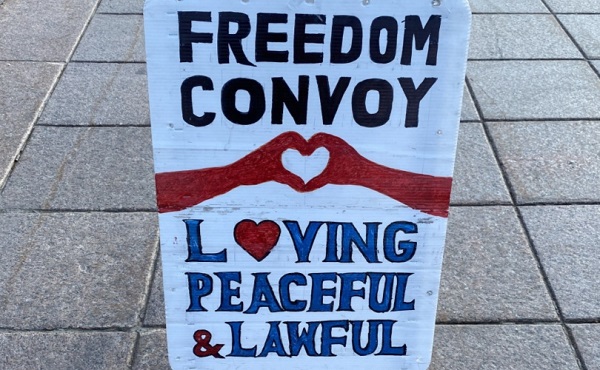
 Censorship Industrial Complex2 days ago
Censorship Industrial Complex2 days agoWhen Did Traditional Values Become Hate Speech?
-

 Crime2 days ago
Crime2 days agoDrug trafficker says Trump battle with the cartels is making an impact
-
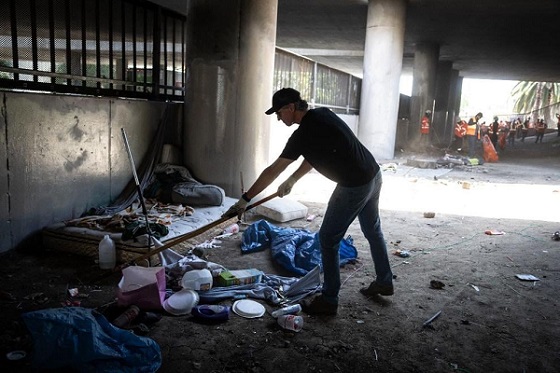
 Business15 hours ago
Business15 hours agoLA skyscrapers for homeless could cost federal taxpayers over $1 billion
-
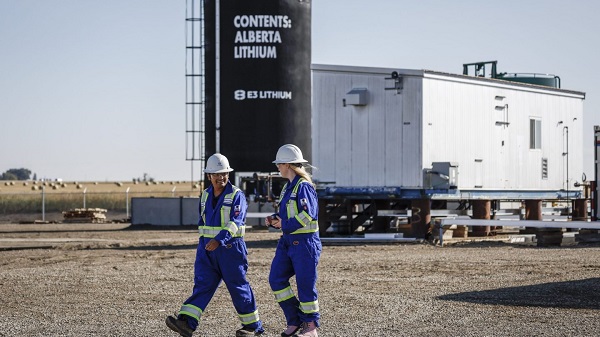
 Alberta16 hours ago
Alberta16 hours agoAlberta’s E3 Lithium delivers first battery-grade lithium carbonate
-

 Artificial Intelligence15 hours ago
Artificial Intelligence15 hours agoAI chatbots a child safety risk, parental groups report







